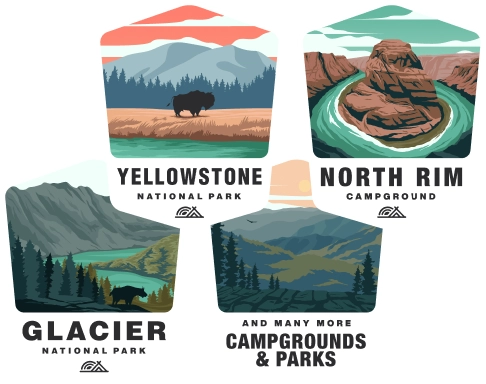Camping at Lyman Lake Campsites
Basic Information
Location: Lyman Lake campsites are situated within the Hiawatha National Forest, which spans the upper peninsula of Michigan, USA.
GPS Coordinates: The specific GPS coordinates for Lyman Lake may vary depending on the exact campsite location. It's recommended to use a forest map or a GPS device for precise navigation.
Forest Office Contact: Hiawatha National Forest information can be obtained by contacting the forest supervisor's office or the nearest ranger district office.
Campsite Details
Campsite Types: There are typically both developed campsites and more primitive, backcountry sites available within Hiawatha National Forest. At Lyman Lake, campsites might offer varying levels of amenities.
Amenities: Developed sites often include features such as picnic tables, fire rings, tent pads, and potentially access to restrooms and potable water. Primitive sites usually have fewer amenities and require a leave-no-trace ethic.
Number of Sites: The number of campsites at Lyman Lake can vary. It's best to check with the forest service for the exact number of sites and the reservation process.
Fee Structure: Camping fees are generally required for developed campsites, while primitive sites might be free or lower in cost. Fees can vary by season, site amenities, and occupancy.
Activities and Points of Interest
Recreational Activities: Camping at Lyman Lake offers opportunities for fishing, boating, hiking, wildlife viewing, and sometimes swimming. Winter camping could also offer snowshoeing or cross-country skiing.
Trails and Natural Features: The area around Lyman Lake may feature trails suited for various skill levels, showcasing the national forest's natural beauty, including forests, lakes, and wetlands.
Reservations and Permits
Reservations: Some campsites may be available on a first-come, first-served basis, while others require reservations. It’s essential to check the reservation policy specifically for Lyman Lake campsites.
Permits: Additional permits may be needed for certain activities like fishing or cutting firewood. Always inquire about necessary permits before your trip.
Regulations and Safety
Campsite Rules: Typically, rules cover fire safety, noise levels, food storage (especially in areas with wildlife like bears), pet control, and the use of motorized vehicles.
Safety Concerns: Be prepared for encounters with wildlife, changing weather conditions, and potential isolation in more remote areas. Always bring a first aid kit, and inform someone of your travel plans.
Access and Accessibility
Road Access: Access to Lyman Lake campsites will depend on the time of year and weather conditions. Roads may be impassable during certain seasons, so check current conditions.
Accessibility: Developed campsites may offer some accessible features for individuals with disabilities, but primitive campsites are generally less accessible. Inquire about specific needs with the forest service.
Nearby Attractions
Local Points of Interest: The Hiawatha National Forest is rich with cultural history and natural attractions, including other lakes, historic sites, and scenic byways.
Towns and Services: Nearby towns may offer additional lodging, supplies, dining, and emergency services. It’s important to know the locations of the nearest facilities when camping in remote areas.
Contact Information and Resources
Forest Service Website: The U.S. Forest Service website provides extensive information about the Hiawatha National Forest and Lyman Lake campsites.
Local Ranger District: For the most accurate and up-to-date information, contact the ranger district responsible for the area where Lyman Lake is located.
Planning Tips
- Check Weather: Always check the weather forecast before departing and prepare for unexpected changes.
- Book Early: If reservations are required, book your campsite well in advance, especially during peak seasons.
- Pack Appropriately: Make a list and pack for both the activities you plan to do and potential emergencies.
- Follow Leave No Trace: Respect the natural environment by following Leave No Trace principles.
- Be Wildlife Aware: Educate yourself on how to store food properly and what to do if you encounter wildlife.
For the most current and detailed information, it’s crucial to check with the Hiawatha National Forest’s service offices or their official website before planning your trip.
